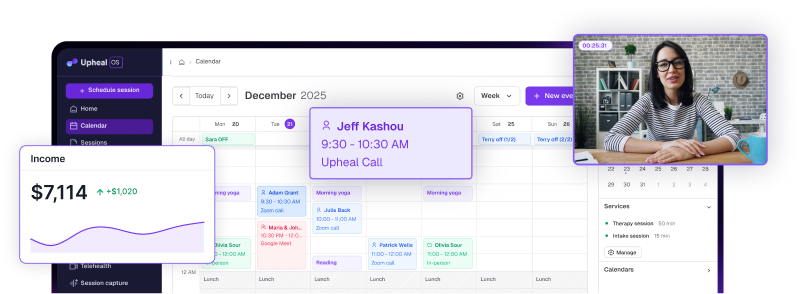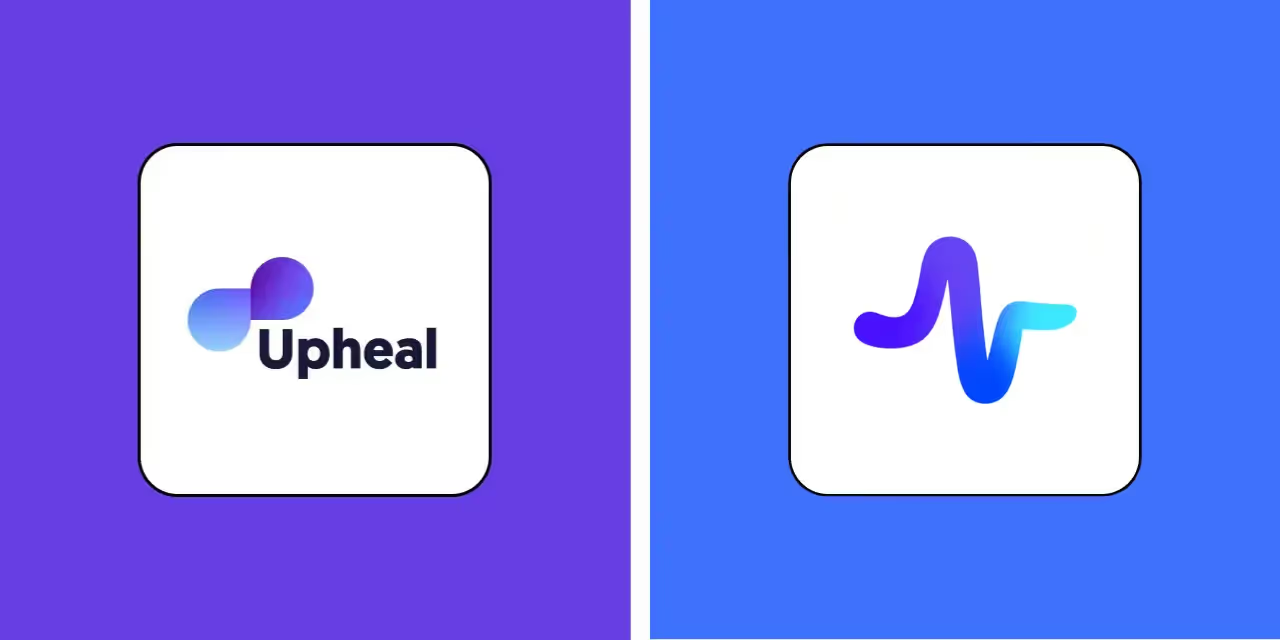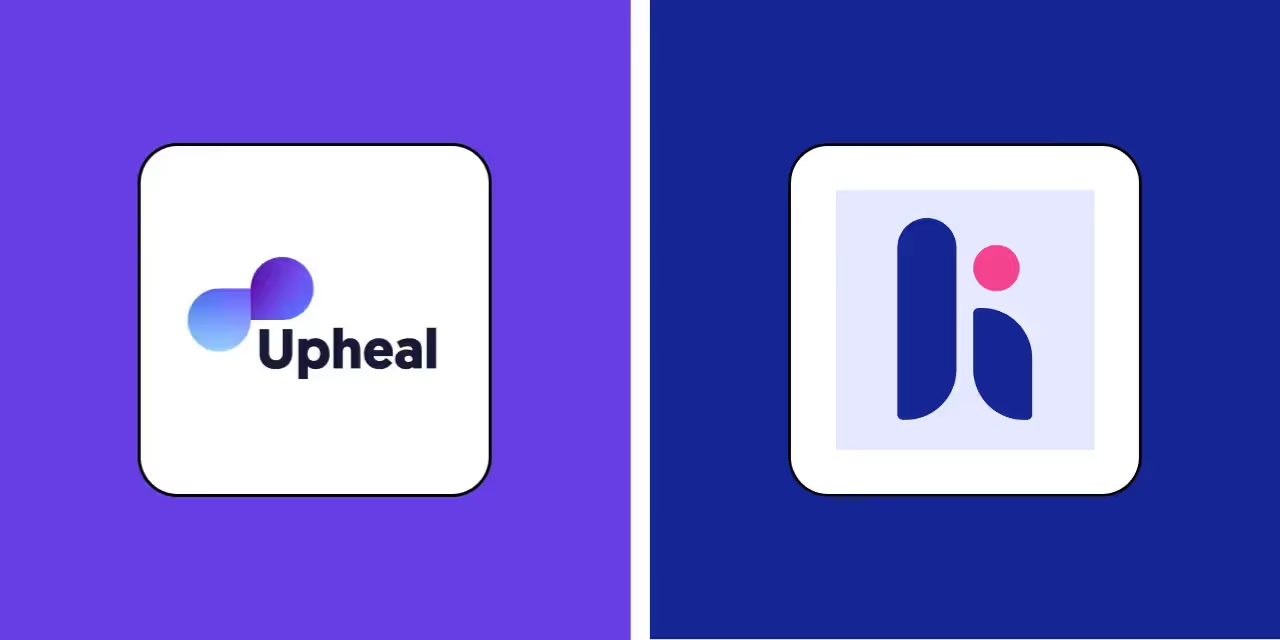Upheal vs Mentalyc: Features, Pricing, and Key Differences in 2025
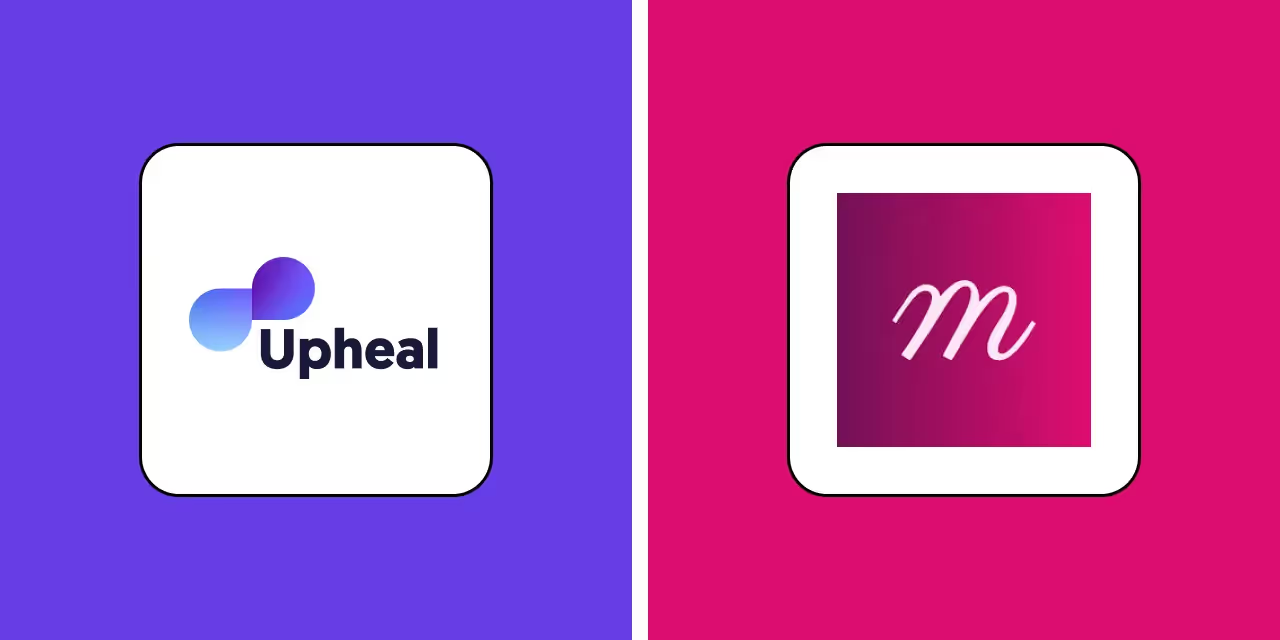
When it comes to AI-powered documentation tools for therapy, the question isn't just which platform offers the best features—it's which one protects your clients' most vulnerable moments while supporting your clinical practice.
Both Upheal and Mentalyc promise to transform how mental health professionals handle documentation, but their approaches to privacy, data handling, and therapeutic support differ significantly.
For therapists navigating the complex landscape of AI note-taking tools, understanding these differences isn't just about efficiency. It's about finding a technology partner that aligns with your deepest professional values while addressing the very real concern: "How do I know my patients' data isn't being used inappropriately?"
Privacy and ethics: The critical differentiator
The most significant distinction between these platforms lies in their approach to data privacy and client consent—areas where therapists rightly have the highest concerns.
The information in the table above is current as of September 2025. It will be updated quarterly to reflect any recent improvements to Mentalyc’s privacy policy as they catch up to Upheal.
Data training and consent
Upheal requires explicit opt-in consent before any client data is used for AI model training. Their consent-first approach means session data is never used to improve AI models unless both therapist and client have made an active, informed choice to participate.
Mentalyc aggregate anonymized Personal Data and use the aggregated information to improve and add features to the service, and for other similar purposes. In addition, Metalyc may analyze the general behavior and characteristics of users and share aggregated information like general user statistics with prospective business partners.
Subpoena response and legal protection
When faced with legal demands for client information, Upheal commits to notifying therapists when served with a subpoena (except where legally prohibited) and offers product features that allow separation of notes and transcripts, ensuring minimal information disclosure.
Mentalyc also commits to notifying providers about legal demands when permitted, though without the technical separation features that limit disclosure scope.
Recording deletion policies
Upheal deletes all audio recordings by default after processing, reducing the risk of stored sensitive content being accessed inappropriately.
Mentalyc processes recordings but their data retention policies are less clearly defined in their public documentation.
Feature differences between Upheal and Mentalyc
Beyond privacy, both platforms offer robust AI-powered documentation— but their feature sets continue to reveal different philosophies about therapeutic support.
The information in the table above is current as of July 2025.
Input flexibility and session capture
Upheal offers flexible options for session capturing through their integrated video platform, in-person or virtual sessions, text and dictation features, and manual uploads. The platform integrates with all EHR and telehealth solutions while creating detailed session analytics and insights, with support for individual, couples, and family therapy formats.
Mentalyc offers dictation, text input, file uploads, and session recording options. This flexibility allows therapists to adapt the tool to their existing workflows without requiring significant changes to their practice setup.
Note types and customization
Both platforms support essential clinical note formats including SOAP, DAP, BIRP, and intake notes. Upheal can generate a number of other formats like GIRP, EMDR, PIRP, SIRP, and PIE notes, and even has templates designed to be compliant for specific platforms (like Headway).
Upheal offers advanced template customization with 100+ preset sections and custom AI prompts, while Mentalyc provides over 100 customizable templates covering various therapeutic modalities including EMDR, Play Therapy, and Psychiatry notes.
Only Upheal allows therapists to customize templates with their own AI prompts. This Smart Sections feature gives clinicians the power to give a prompt based on their unique needs and preferences.

The result is a customized template that always writes in the clinician’s preferred style and format.
Analytics and treatment planning
Upheal distinguishes itself with advanced session analytics, offering therapists detailed insights into client interactions, session patterns, and progress tracking through their "Golden Thread" feature that links interventions to treatment plans.
Mentalyc includes their Alliance Ginie™ analytics system, which focuses on therapeutic alliance measurement and provides treatment plan generation, though with less emphasis on deep session analytics. xMentalyc’s analytics do not currently work with group, couples, or family sessions.
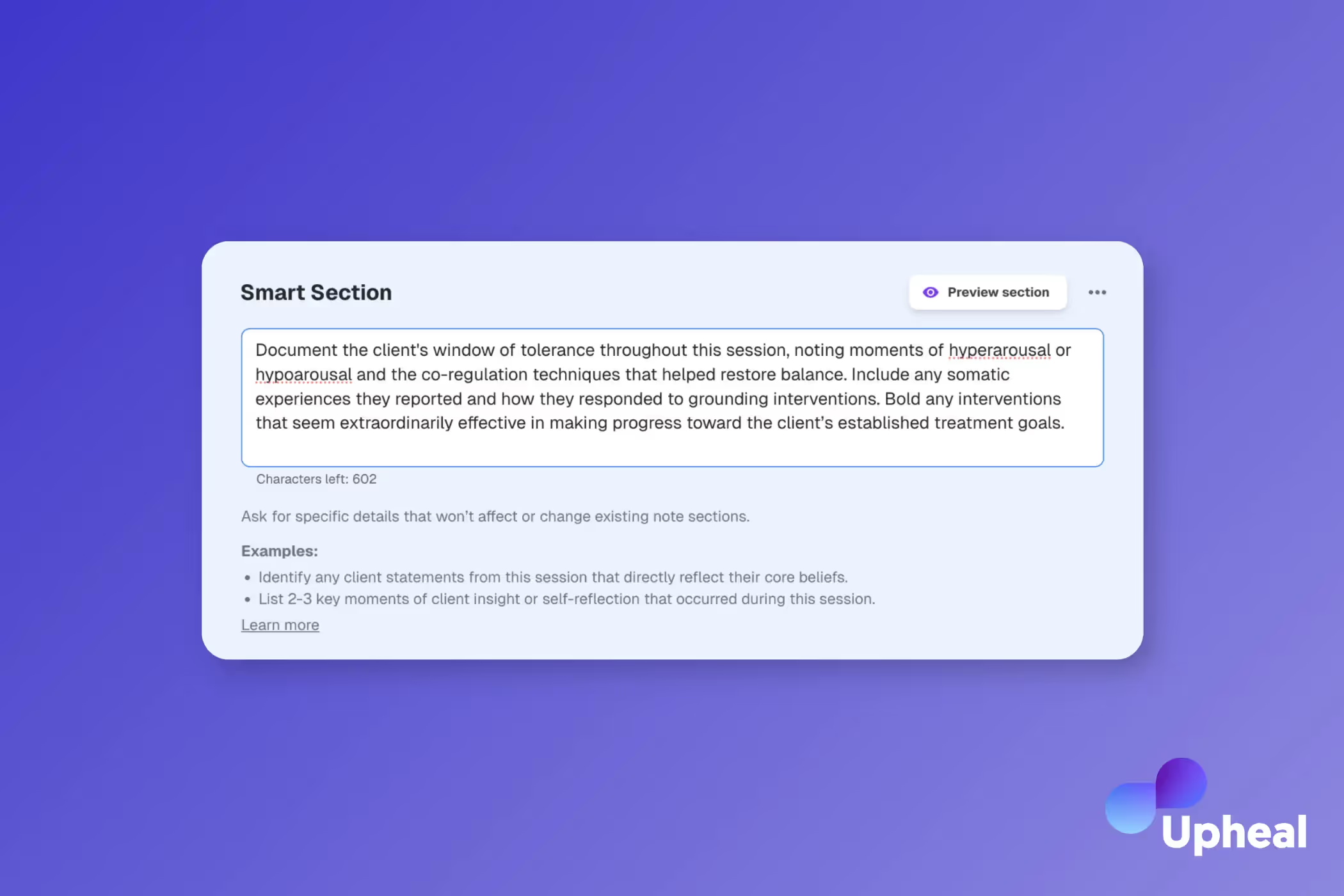
Integration and workflow
Upheal offers EHR calendar integration, and allows you to connect multiple calendars into a centralized system (including Outlook, Alma, Headway, SimplePractice, and more).
Upheal also supports flexible workflows by offering a browser extension you can use outside its app.
Another integration offered by Upheal is Smart Fill, allowing users to transfer their notes into their EHR with a single click rather than copying and pasting each section. At launch, Smart Fill was made available for use with SimplePractice, with more EHRs to be supported soon. Mentalyc does not currently have a feature like this.
Mentalyc emphasizes easy copy-paste functionality with existing EHR systems and cross-device compatibility.
What therapists think about Upheal and Mentalyc
The conversation among mental health professionals reveals nuanced perspectives about both platforms, with privacy concerns and note quality consistently at the forefront.
“I randomly checked some of my Mentalyc notes from last month and found multiple sessions where it said my client said things that I actually said 😨. Like straight up wrong speaker attribution. […] Now I’m spiraling about every note I’ve submitted. One transcription had ‘anxious about work’ as ‘anxious about worth’ which is completely different clinically.” via Reddit
Cost concerns also emerge frequently in discussions, with therapists split on being able to justify the cost of a more premium product.
“Upheal is more expensive than some other similar programs but it's well worth the money. I paid for a year's subscription for Mentalyc but couldn't figure out how to use it even after spending 45 minutes with a team who tried to help me.” - Lisa Talcott
Recently, Upheal announced price reductions that makes more of their features available at a lower rate. Starter plans begin at $19/month (billed annually), and Premium plans offer access to all Upheal tools at $69/month (also annual).
Upheal also added features to their popular Free plan, allowing clinicians to conduct telehealth calls, generate notes from written or spoken summaries, and take notes from an uploaded session recording — all at no cost.
Making the right choice for your practice
When choosing between these platforms, consider your practice's specific needs and values.
If privacy and more advanced features are your priority, Upheal is likely the better option. It's consent-first approach to data handling, along with rich session insights and customizable note templates, provides a powerful solution for privacy-conscious practitioners seeking both security and deeper therapeutic analytics. Upheal now offers comparable pricing to Mentalyc (paid plans starting at $19/month) while delivering greater value for those who need more than a basic AI assistant.
If you’re simply looking to try out AI, and aren’t too focused on privacy or advanced functionality, either platform could work for you. Upheal and Mentalyc are among the most similar in the category of AI platforms for clinicians, and both are designed to support clinical documentation with minimal disruption to your workflow.
For group practices, it's worth considering how team collaboration, analytics, and EHR integration factor into your daily operations. Upheal’s team features are built with scalability in mind, making it a strong fit for practices looking to measure outcomes, streamline supervision, or support multiple providers under one account.
Both platforms offer free trials, allowing you to evaluate how each tool fits your therapeutic style and workflow before committing. The right choice is the one that enhances your clinical presence while maintaining the trust and confidentiality that form the foundation of therapeutic healing.
